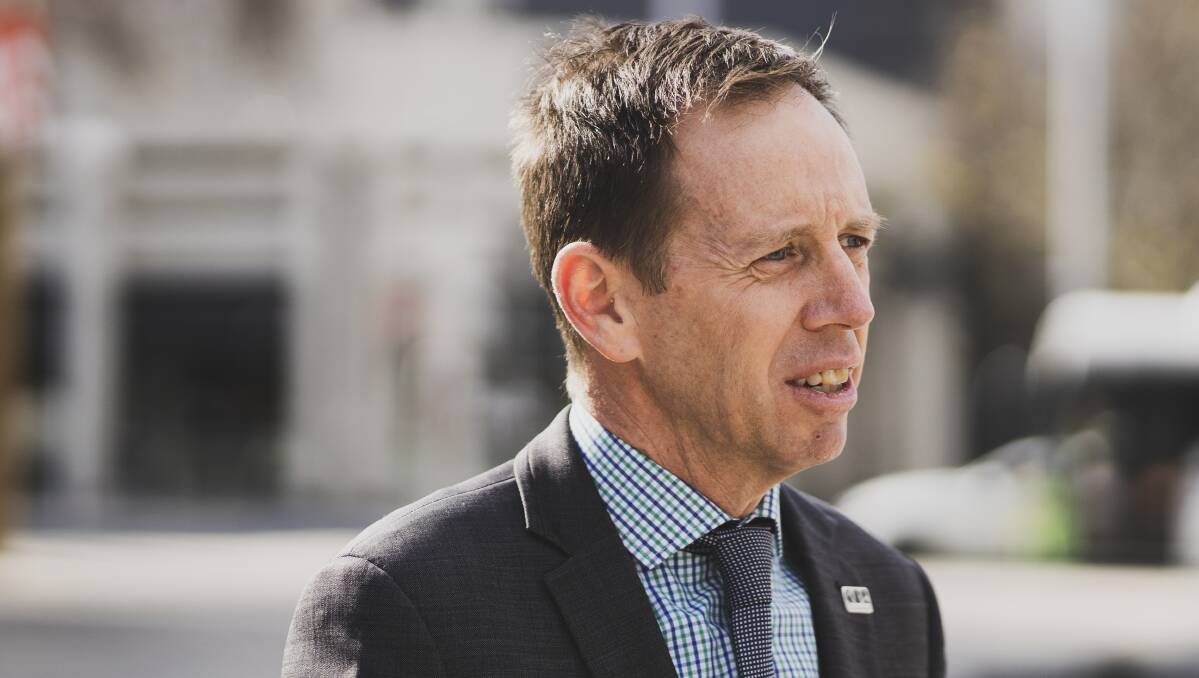
A trial program designed to support Aboriginal and Torres Strait Islander people and their families to keep them out of the ACT's prison system will receive a further $1.5 million in government funding.
Subscribe now for unlimited access.
or signup to continue reading
The Yarrabi Bamirr program, established in 2017, pairs social health team workers from local Aboriginal-led organisations to design plans for families to address housing, health, justice, education and employment issues.
Minister for Corrections and Justice Shane Rattenbury said the funding built on what had been a successful trial of the program and he hoped to see it continue and expand.
"If we don't intervene and make a difference, we'll simply need to keep expanding jails. ... You're better off making this investment to see the long-term rewards," Mr Rattenbury said.
Funding will be provided to Winnunga Nimmityjah Aboriginal Health Service, as well as Yeddung Murra and Tjillari Justice over three years.
Winnunga Nimmityjah will receive additional funding to support an extra four families in the program over three years, alongside the 10 families the organisation already supports.
Yeddung Murra and Tjillari Justice will receive funding to each support a further six families for three years.
Tjillari Justice chief executive Deborah Evans welcomed the extra funding but said Aboriginal organisations needed long-term funding guarantees to keep programs secure.
"There has to be some kind of continuity and some kind of urgency in how the government deals with allocating these kinds of funds," Ms Evans said.
Ms Evans said Aboriginal organisations were usually funded on a program basis which left little disposable income to fill the gaps created by running costs and overheads.
Working with different organisations in an effort to engage whole family groups often exposed gaps in support, she said.
She said early intervention was the key to help Aboriginal children avoid being sent to prison, with focus on the circumstances that led to the initial offending rather than the individual offender.
"There's not going to be changes in the number of adults going into prison unless we start by changing the reality of children's lives," Ms Evans said.
The ACT has the highest national rate of recidivism among Aboriginal detainees, with 90 per cent held in the Alexander Maconochie Centre found in a recent study to have had a prior history of incarceration in the ACT.
READ MORE
The Productivity Commission's 2020 report on government services also found an Aboriginal person in the ACT was 18.9 times more likely to be imprisoned than a non-Aboriginal person, second only to Western Australia.
Mr Rattenbury said the territory could not keep doing what it was doing and funding justice reinvestment initiatives was a key part of reducing the ACT's Aboriginal prison population.
"The rate of Aboriginal incarceration in the ACT is unacceptable. As I've said before, we can't keep doing what we've done because that has produced that result," he said.
Mr Rattenbury said he had been frustrated by the ACT's lack of position on raising the age of criminal responsibility. A national decision on the age has been delayed until next year.
Children as young as 10 can be arrested, charged and detained under the current system.
"I'm frustrated by the outcomes of the attorneys-general meeting recently. To see it pushed so far down the road is problematic and I think that we need to consider here in the ACT not waiting for the national consensus but actually making our own step," Mr Rattenbury said.


